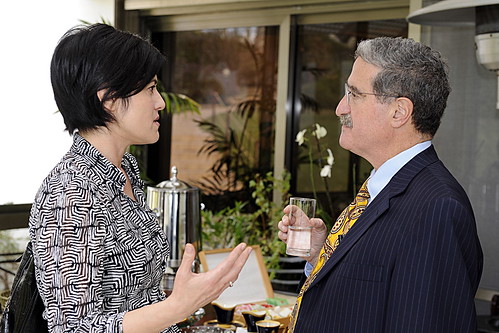
It occurs to me that just as in the rest of our lives, some of the best things in divorce are free.
Here are more than a few free items that I came up with on a recent afternoon.
Initial Consultation
Most importantly, many atttorneys and other divorce professionals offer free (or low cost) initial consultations to help you understand your options. I enjoy offering free consultations because I can make the most impact on a person’s life by helping them at the very beginning before they waste time and money.
General Divorce Information
It’s free to keep reading this blog! There are many helpful articles to help guide your decisions. You can learn what is involved in divorce and how to choose professionals to help you with the divorce process.
Read my Family Law blog called Always Family Center for free information about many Family Law topics.
Learn more about Collaborative Divorce
here.
Want to look through the statute on divorce to get an overview of the law? It’s available for free
here.
Go to your local library. They all have a section on divorce and other legal topics. Why not take advantage of the free books at your local library? You already paid for it with your taxes, right!
Parenting in Divorce
You can view an 8 hour online class for divorcing or separating parents called
Parents Forever for free or very little cost provided by the University of Minnesota.
Children’s Expenses
Here is a link to the Minnesota Department of Human Services publication titled
Understanding Child Support: A Handbook for Parents.
If you are curious about how the Minnesota Guidelines Child Support Calculator works, that’s available for free
here.
If you want to look through the statute on child support to get a more in-depth view of the law, it’s available for free
here.
Budgets
Do you want to know what your budget is? Just look at your checkbook or last credit or debit card statement and make a list of the most common expenses.
Thinking about moving out and living somewhere else and want to know how much it would cost? For rentals, just look online or make some phone calls from ads in the paper, all for free.
Parenting Plans
Want to create a great parenting plan? Consult with a Neutral Child Specialist. You can find one
here. Look for the area titled “Find a Professional by Profession” and then chose “Child Specialist”.
Here is probably the best available court system
parenting schedule guide, which happens to be from Arizona (But helpful regardless of where your kids live!). Here’s the
Parenting Agreement Worksheet from the Minnesota Court system. Again from Minnesota, here is
A Parental Guide to Making Child-Foccused Parenting Time Decisions.
Sending an email to your child’s other parent to tell them that you appreciate something about their parenting is free.
Picking up the phone and talking with your ex about your child’s upcoming events is free (or nearly free).
Want to search for a Collaborative Divorce attorney or financial professional or coach or child specialist? It’s right here on the
Minnesota Collaborative Law Institute website.
 Part 5: Working with a team of professionals in Collaborative Divorce creates better outcomes.
A Collaborative Divorce is one in which the husband and the wife each retain a lawyer for settlement purposes only. In addition, in a Collaborative Divorce, the other professionals on the team, must commit to work or settlement purposes as well.
Divorce marks the end of a martial relationship and the beginning of a new life. While divorce is a legal proceeding, future success for your family may have more to do with parenting, financial planning and communication than with legal issues. While lawyers can be helpful on these additional issues, your family can generally get better assistance, at a lower cost, by turning to professionals with more skills in these other areas.
If your primary concern is how to co-parent your children in divorce, you are far more likely to gain valuable insights on how to do this by having your family work with a child specialist with the education and training in child development rather than law. If you are concerned about how to meet your expenses in both households, you are likely to get more initial benefit from working with a financial professional than with an attorney. Similarly, if your primary concern relates to difficulties in communicating with your spouse, you may want to work with a divorce coach who has the skills and training to help you focus on these important areas.
The Collaborative Divorce process is often a team process in which you work with a team of professionals rather than just with attorneys. You may initially be apprehensive about working with a team of professionals believing that it will increase your cost. However, if you plan your process carefully, working with other professionals can reduce your cost and help you create a better outcome. Generally, the work done by the financial professionals and the mental health professionals replaces much of the work done by the attorneys, allowing you to get more skilled help, generally, at a lower hourly rate.
One of the keys to success in working with a team is to make sure that you get the level of professional help that best meets the needs of your unique family. Options in working with your Collaborative Divorce Team will be discussed in an upcoming blog. However, if you want information on this now, go to www.collaborativelaw.org and www.ousky.com.
You can read the final part of this series, here.
Part 5: Working with a team of professionals in Collaborative Divorce creates better outcomes.
A Collaborative Divorce is one in which the husband and the wife each retain a lawyer for settlement purposes only. In addition, in a Collaborative Divorce, the other professionals on the team, must commit to work or settlement purposes as well.
Divorce marks the end of a martial relationship and the beginning of a new life. While divorce is a legal proceeding, future success for your family may have more to do with parenting, financial planning and communication than with legal issues. While lawyers can be helpful on these additional issues, your family can generally get better assistance, at a lower cost, by turning to professionals with more skills in these other areas.
If your primary concern is how to co-parent your children in divorce, you are far more likely to gain valuable insights on how to do this by having your family work with a child specialist with the education and training in child development rather than law. If you are concerned about how to meet your expenses in both households, you are likely to get more initial benefit from working with a financial professional than with an attorney. Similarly, if your primary concern relates to difficulties in communicating with your spouse, you may want to work with a divorce coach who has the skills and training to help you focus on these important areas.
The Collaborative Divorce process is often a team process in which you work with a team of professionals rather than just with attorneys. You may initially be apprehensive about working with a team of professionals believing that it will increase your cost. However, if you plan your process carefully, working with other professionals can reduce your cost and help you create a better outcome. Generally, the work done by the financial professionals and the mental health professionals replaces much of the work done by the attorneys, allowing you to get more skilled help, generally, at a lower hourly rate.
One of the keys to success in working with a team is to make sure that you get the level of professional help that best meets the needs of your unique family. Options in working with your Collaborative Divorce Team will be discussed in an upcoming blog. However, if you want information on this now, go to www.collaborativelaw.org and www.ousky.com.
You can read the final part of this series, here.  Part 5: Working with a team of professionals in Collaborative Divorce creates better outcomes.
A Collaborative Divorce is one in which the husband and the wife each retain a lawyer for settlement purposes only. In addition, in a Collaborative Divorce, the other professionals on the team, must commit to work or settlement purposes as well.
Divorce marks the end of a martial relationship and the beginning of a new life. While divorce is a legal proceeding, future success for your family may have more to do with parenting, financial planning and communication than with legal issues. While lawyers can be helpful on these additional issues, your family can generally get better assistance, at a lower cost, by turning to professionals with more skills in these other areas.
If your primary concern is how to co-parent your children in divorce, you are far more likely to gain valuable insights on how to do this by having your family work with a child specialist with the education and training in child development rather than law. If you are concerned about how to meet your expenses in both households, you are likely to get more initial benefit from working with a financial professional than with an attorney. Similarly, if your primary concern relates to difficulties in communicating with your spouse, you may want to work with a divorce coach who has the skills and training to help you focus on these important areas.
The Collaborative Divorce process is often a team process in which you work with a team of professionals rather than just with attorneys. You may initially be apprehensive about working with a team of professionals believing that it will increase your cost. However, if you plan your process carefully, working with other professionals can reduce your cost and help you create a better outcome. Generally, the work done by the financial professionals and the mental health professionals replaces much of the work done by the attorneys, allowing you to get more skilled help, generally, at a lower hourly rate.
One of the keys to success in working with a team is to make sure that you get the level of professional help that best meets the needs of your unique family. Options in working with your Collaborative Divorce Team will be discussed in an upcoming blog. However, if you want information on this now, go to www.collaborativelaw.org and www.ousky.com.
You can read the final part of this series, here.
Part 5: Working with a team of professionals in Collaborative Divorce creates better outcomes.
A Collaborative Divorce is one in which the husband and the wife each retain a lawyer for settlement purposes only. In addition, in a Collaborative Divorce, the other professionals on the team, must commit to work or settlement purposes as well.
Divorce marks the end of a martial relationship and the beginning of a new life. While divorce is a legal proceeding, future success for your family may have more to do with parenting, financial planning and communication than with legal issues. While lawyers can be helpful on these additional issues, your family can generally get better assistance, at a lower cost, by turning to professionals with more skills in these other areas.
If your primary concern is how to co-parent your children in divorce, you are far more likely to gain valuable insights on how to do this by having your family work with a child specialist with the education and training in child development rather than law. If you are concerned about how to meet your expenses in both households, you are likely to get more initial benefit from working with a financial professional than with an attorney. Similarly, if your primary concern relates to difficulties in communicating with your spouse, you may want to work with a divorce coach who has the skills and training to help you focus on these important areas.
The Collaborative Divorce process is often a team process in which you work with a team of professionals rather than just with attorneys. You may initially be apprehensive about working with a team of professionals believing that it will increase your cost. However, if you plan your process carefully, working with other professionals can reduce your cost and help you create a better outcome. Generally, the work done by the financial professionals and the mental health professionals replaces much of the work done by the attorneys, allowing you to get more skilled help, generally, at a lower hourly rate.
One of the keys to success in working with a team is to make sure that you get the level of professional help that best meets the needs of your unique family. Options in working with your Collaborative Divorce Team will be discussed in an upcoming blog. However, if you want information on this now, go to www.collaborativelaw.org and www.ousky.com.
You can read the final part of this series, here. 



 It occurs to me that just as in the rest of our lives, some of the best things in divorce are free.
Here are more than a few free items that I came up with on a recent afternoon.
Initial Consultation
Most importantly, many atttorneys and other divorce professionals offer free (or low cost) initial consultations to help you understand your options. I enjoy offering free consultations because I can make the most impact on a person’s life by helping them at the very beginning before they waste time and money.
General Divorce Information
It’s free to keep reading this blog! There are many helpful articles to help guide your decisions. You can learn what is involved in divorce and how to choose professionals to help you with the divorce process.
Read my Family Law blog called Always Family Center for free information about many Family Law topics.
Learn more about Collaborative Divorce
It occurs to me that just as in the rest of our lives, some of the best things in divorce are free.
Here are more than a few free items that I came up with on a recent afternoon.
Initial Consultation
Most importantly, many atttorneys and other divorce professionals offer free (or low cost) initial consultations to help you understand your options. I enjoy offering free consultations because I can make the most impact on a person’s life by helping them at the very beginning before they waste time and money.
General Divorce Information
It’s free to keep reading this blog! There are many helpful articles to help guide your decisions. You can learn what is involved in divorce and how to choose professionals to help you with the divorce process.
Read my Family Law blog called Always Family Center for free information about many Family Law topics.
Learn more about Collaborative Divorce  These poetic words are often ringing in my ears when I sit with a divorcing couple hoping that they might be able to summon their best selves during difficult times. Divorce can be so emotionally challenging that it is easy to excuse people who cannot bring their better angels to the process. It would be wrong to judge anyone who, when facing divorce, becomes so blinded by fear or anger that they seem unable to summon their better natures.
Yet, as a
These poetic words are often ringing in my ears when I sit with a divorcing couple hoping that they might be able to summon their best selves during difficult times. Divorce can be so emotionally challenging that it is easy to excuse people who cannot bring their better angels to the process. It would be wrong to judge anyone who, when facing divorce, becomes so blinded by fear or anger that they seem unable to summon their better natures.
Yet, as a